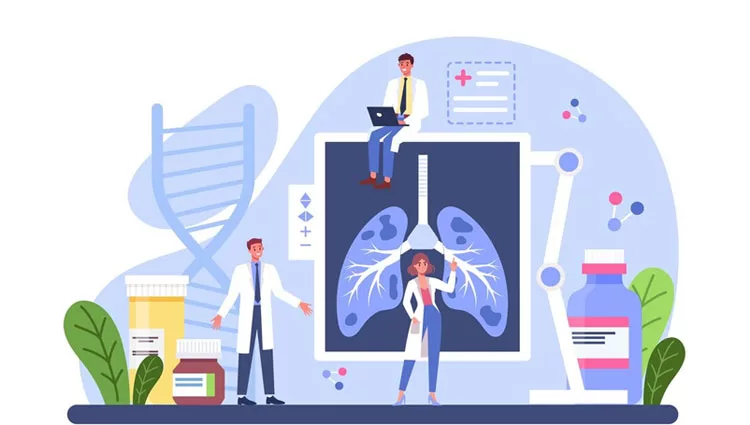On a worldwide scale, of all the different forms of cancer, lung cancer is one of the most common, and even though smoking is the leading cause of this particular strain of the disease, there are a variety of other possible causes.
Having just received a lung cancer diagnosis, it is entirely understandable if you simply do not know what to do or, indeed, how to react, let alone how to tell your nearest and dearest, and if you do find yourself in this challenging position, then hopefully the following guide on what to do next should help.
Prepare Yourself for More Scans & Tests
In order for your doctors to ascertain how to proceed with your particular stage and location of lung cancer, you will need to prepare yourself to undergo a series of additional tests and scans, and it is likely, upon having your diagnosis confirmed, that these will begin sooner rather than later.
You may be asked to attend an imaging scan using an MRI machine or else through a PET or CT scan, submit samples through a biopsy to a specialist laboratory, and/or undergo a mediastinotomy or mediastinoscopy.
Consider a Second Opinion
Now, this next suggestion on the list is somewhat controversial and will come down to how much you trust your doctor, how reputable and renowned the clinic or hospital is, and how experienced you know the medical professional to be.
Seeking a second opinion, either regarding the actual diagnosis of lung cancer itself, or else as to the various treatment options and what is best for your own personal situation, is entirely your prerogative, and never be shy in seeking a second examination from a different doctor should you feel it necessary.
Learn About Lung Cancer
Often, the fear of something is greater than the thing itself, and although, obviously, anybody who has been told they have a cancerous tumor is liable to panic, this will not do your mind or your body any good.
Instead, seek to become an expert in the specific type and location of lung cancer you have and, crucially, only include within your research reputable sources. Speak to your doctor and ask where they would recommend you go to fully understand what is happening and what will happen moving forward.
Prioritize Yourself
These days, whether going through an emotional time with physical health or not, it is wrongly impressed on the average person that to spend too much time focusing on their own need and wants is selfish, and even for people who are healthy, this is the wrong message to send.
Moffitt Cancer Center and other leading cancer treatment centers will provide you with copious information regarding everything from what is going to happen next, to how to talk to your family about your diagnosis and the next steps. Furthermore, they will also be on hand to inform you on prioritizing your needs and ensuring that you are doing everything you can to nurture and protect your emotional health and well-being.
Coming to terms with your diagnosis and what is ahead of you is no small feat but is important on your journey to remission.
Ensure Your Health Records Are in Order
As you prepare to begin your treatment for lung cancer and hopefully eradicate the tumor entirely to go on to live a cancer-free life in remission, a more practical consideration is to ensure that your health records are both accessible and in order.
As a basic guide, your health records should encompass the addresses, phone numbers, and full names of your doctors, both those whom you have been seeing regarding cancer and your regular medical doctors, as well as all of your test results.
In addition, your health records also include the official diagnosis itself, a full and detailed history of your health to date, and a history of your immediate family’s health records, especially if someone in your immediate family has previously had cancer.
Finally, even though money and payment will both be towards the bottom of your list of priorities, you should also sort out your health insurance in preparation and find out about your deductibles and copayments, should this be applicable.





